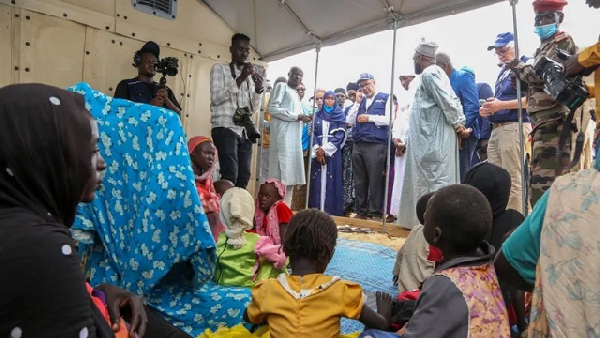Starvation in war-hit Sudan ‘almost everywhere’ – WHO
3 min read

The World Health Organization (WHO) has issued a dire warning about the situation in Sudan, describing starvation as “almost everywhere” in the war-torn country. This alarming assessment follows a recent visit by WHO Director-General Tedros Adhanom Ghebreyesus, who spoke Today programme about the crisis unfolding in Sudan.
Dr. Tedros highlighted the severe humanitarian situation, emphasizing the massive displacement of people, which has reached unprecedented levels. “The situation in Sudan is very alarming,” he stated. “The massive displacement is now the largest in the world, and we are seeing famine.” With 12 million people displaced, the scale of the crisis is overwhelming, and Dr. Tedros noted that global attention to Sudan remains insufficient.
The conflict in Sudan began in April 2023 when civil war erupted between the Sudanese army and the paramilitary Rapid Support Forces (RSF). The war has led to significant casualties and widespread devastation. “Imagine: destruction, displacement, diseases everywhere, and now famine,” Dr. Tedros described. He had recently visited a camp for internally displaced persons and a hospital in Sudan, where he observed many children suffering from severe malnutrition, “skin and bone, emaciated.”
According to Dr. Tedros, nearly 25 million people—about half of Sudan’s population—are in urgent need of humanitarian assistance. He stressed that the international community’s focus on Sudan is disproportionately low compared to other crises. “I think race is a factor here,” he suggested, noting a pattern of underreported crises in Africa. Dr. Tedros, who experienced war in Ethiopia during his youth, lamented the lack of attention given to conflicts in African countries, including Sudan.
Dr. Tedros’s comments also drew a parallel with the global response to other crises. He pointed out that following Russia’s invasion of Ukraine in 2022, the world provided significant attention and aid, which he feels was not equitably distributed. He noted that conflicts in places like Tigray in Ethiopia, Yemen, Afghanistan, and Syria received far less support. “The aid given to Ukraine was substantial, but similar humanitarian crises in Africa received a fraction of that attention,” he remarked.
The WHO chief urged mainstream media to give more coverage to the dire situation in Sudan, calling it a “tragedy” that requires urgent action. He drew comparisons to his own experiences, recalling the fear and survival struggles his family faced during the Ethiopian conflicts. “I know the smell of war, the image of war, the sound of war,” Dr. Tedros reflected. “I see the same suffering in Sudan and Gaza.”
In August, a UN-backed committee of experts declared a famine in a camp near el-Fasher in Darfur, one of the most affected regions. The camp, housing about 500,000 displaced individuals, is emblematic of the severe conditions faced by many in the country.
The roots of the current conflict can be traced back to a coup in 2021, led by Gen Abdel Fattah al-Burhan and Mohamed Hamdan Dagalo, head of the RSF. Although their partnership initially aimed to address Sudan’s governance issues, it eventually fractured, leading to the civil war that erupted last year. The situation has been further complicated by external influences, with accusations against the United Arab Emirates (UAE) of supporting the RSF with resources—a claim the UAE denies. Saudi Arabia, meanwhile, is believed to have close ties with the Sudanese government.
Despite various mediation efforts, brokered by Saudi Arabia and the US, peace remains elusive. The ongoing conflict has exacerbated the humanitarian crisis, making the need for international attention and support more critical than ever. Dr. Tedros’s call for greater global awareness and action underscores the urgent need to address the famine and widespread suffering in Sudan.